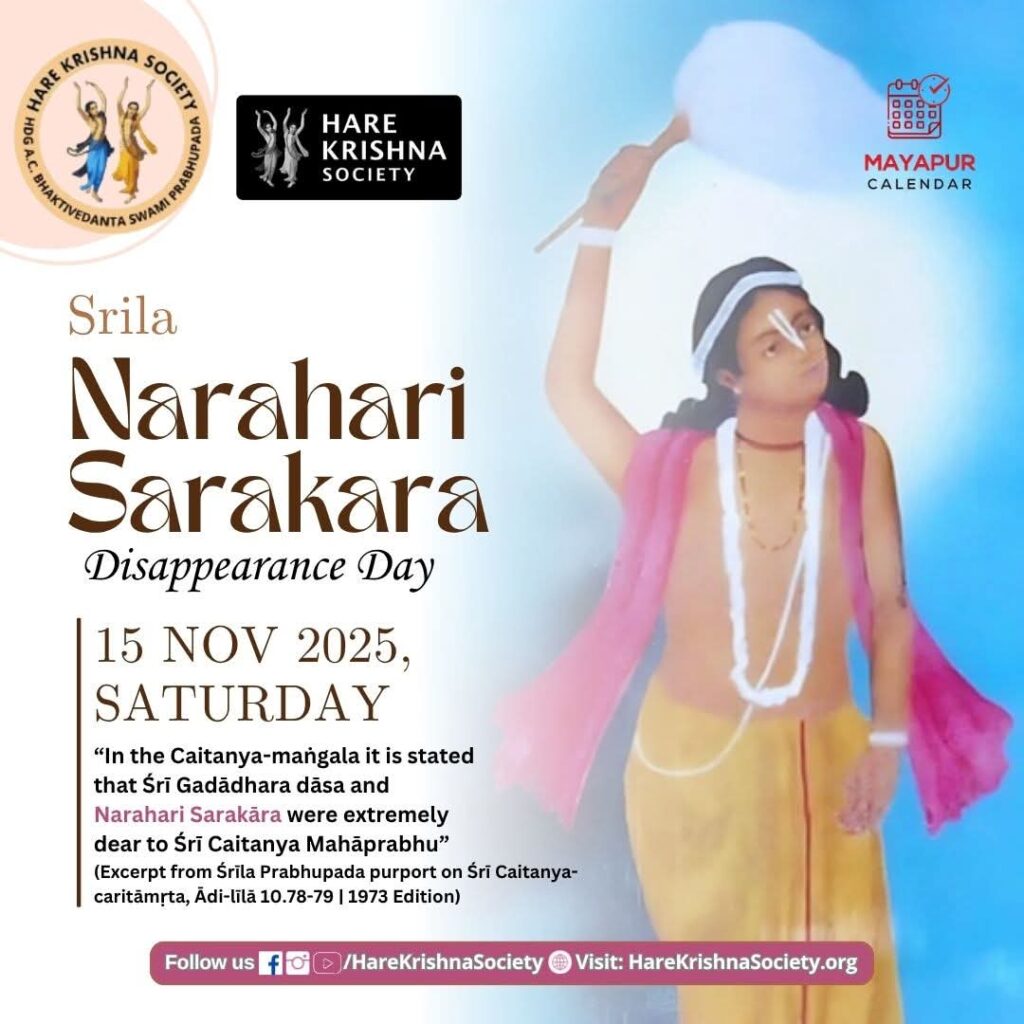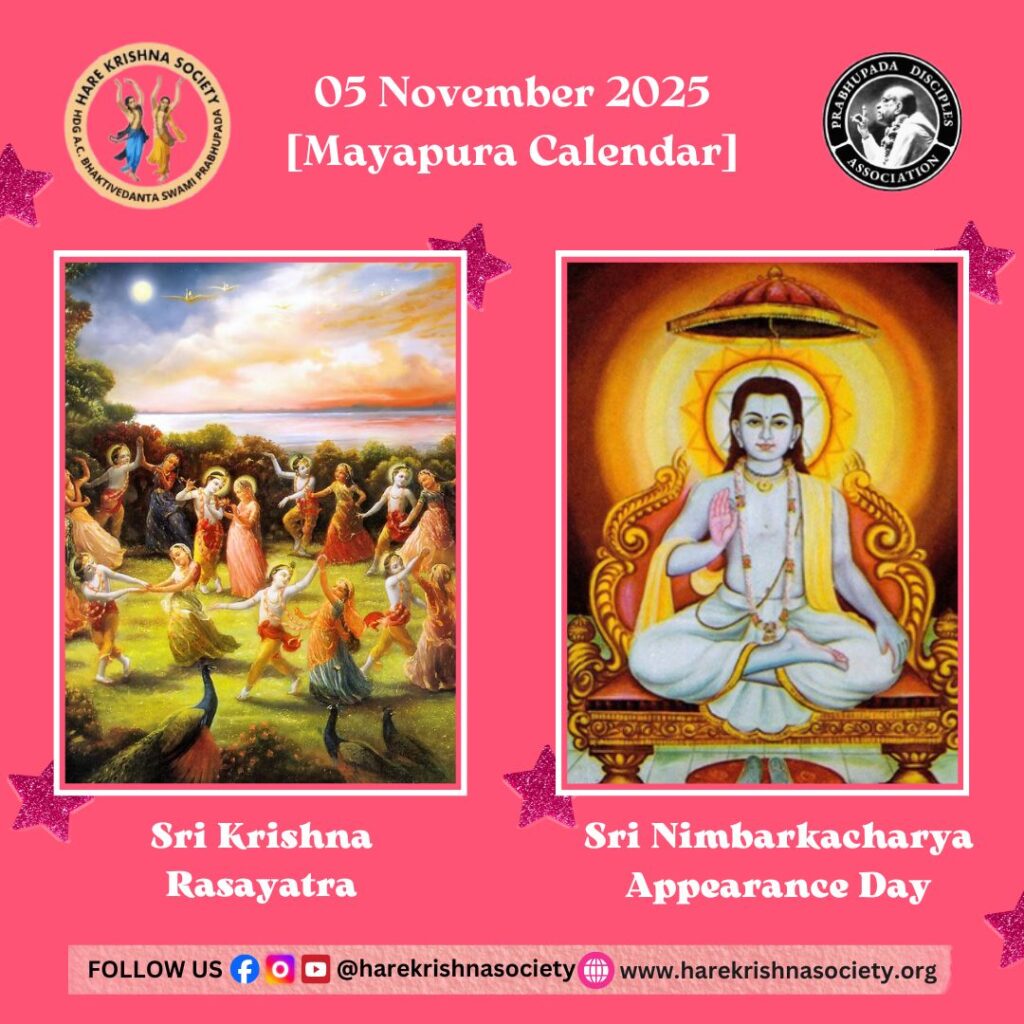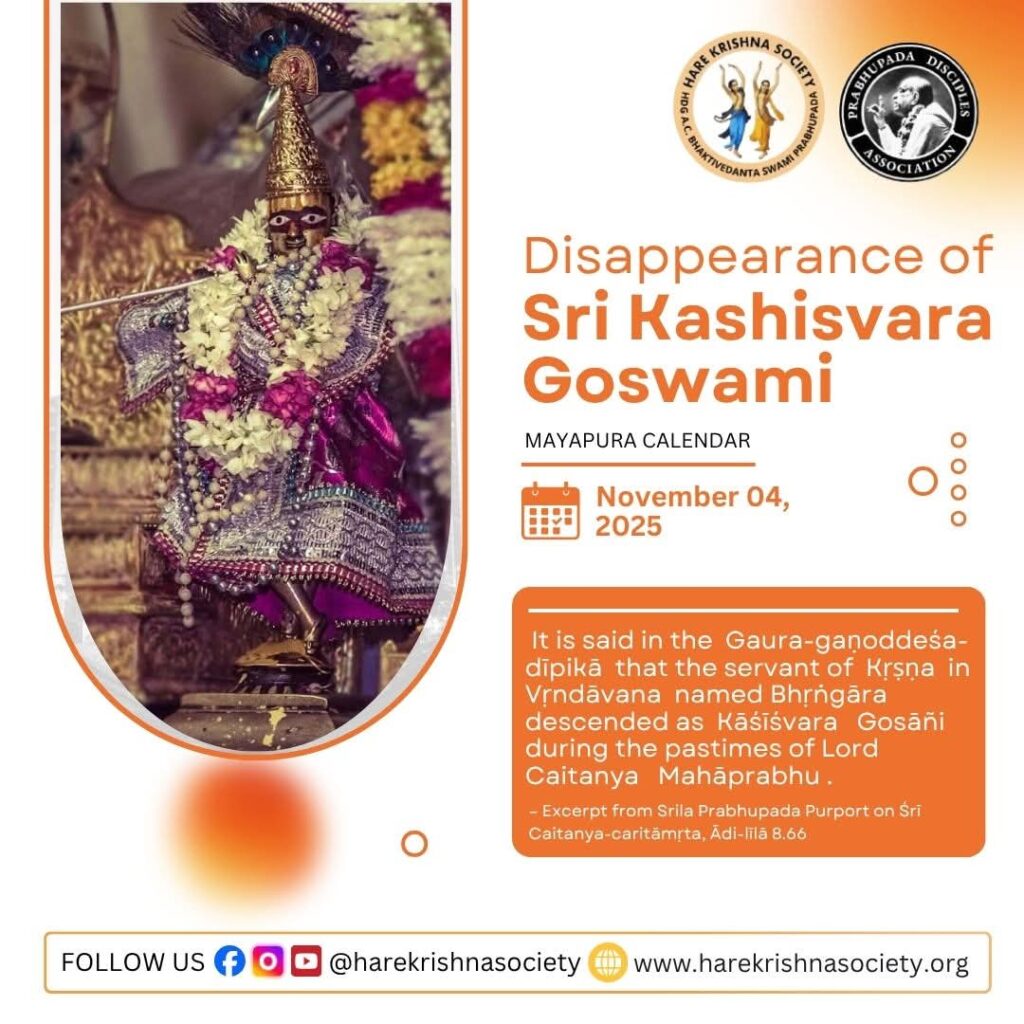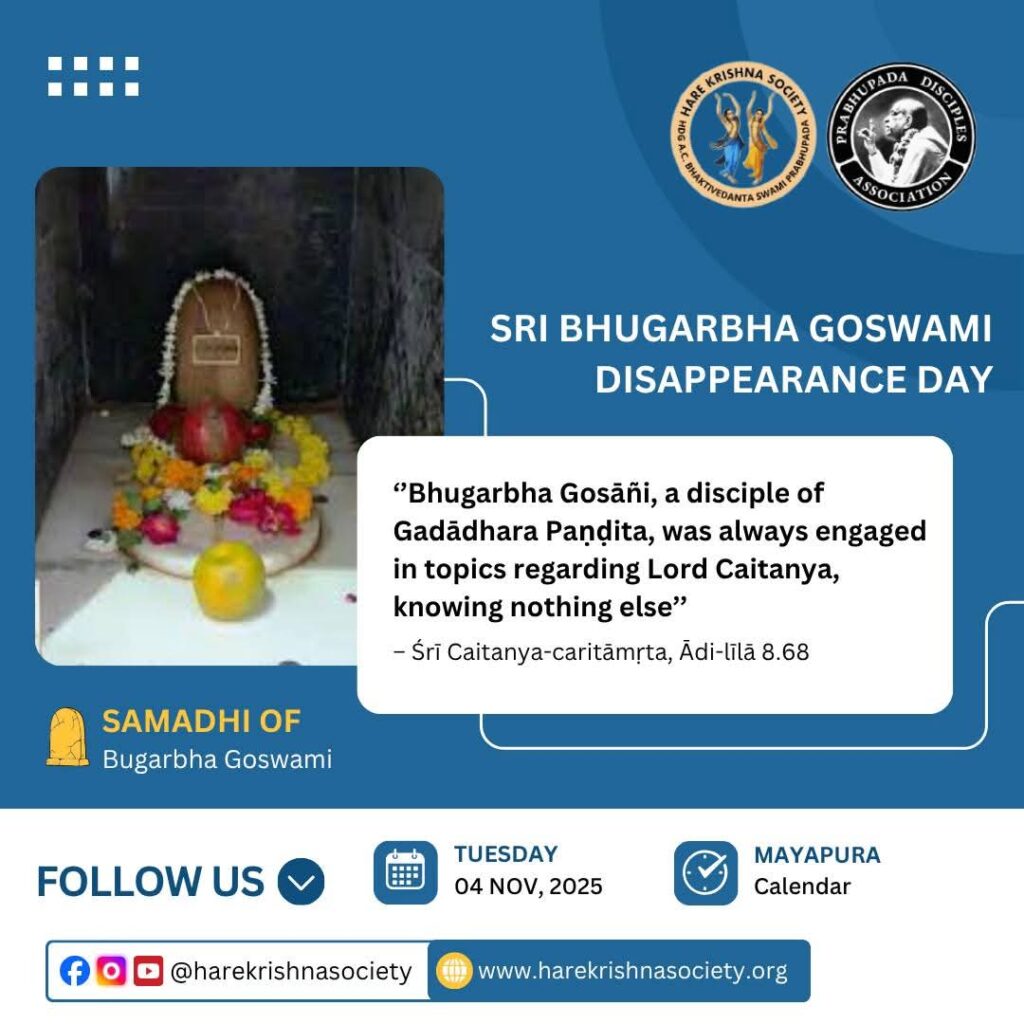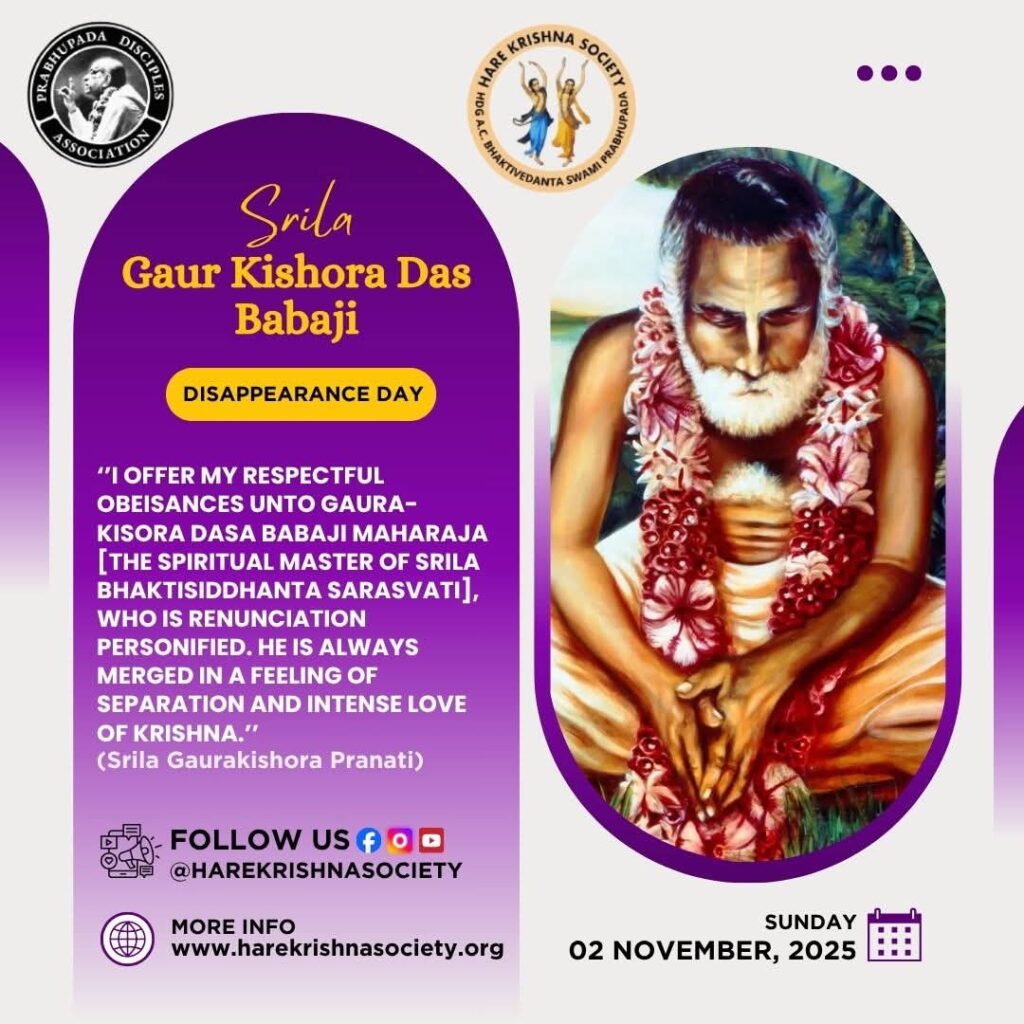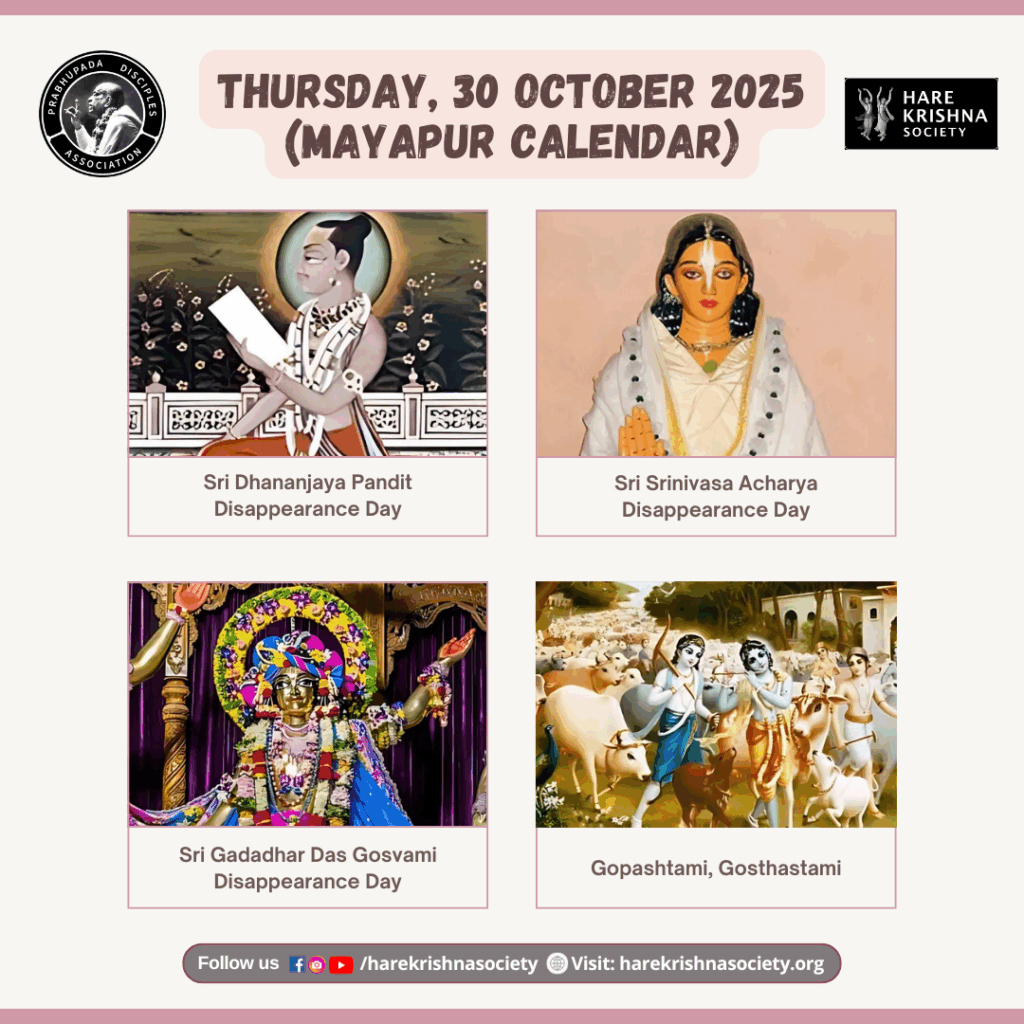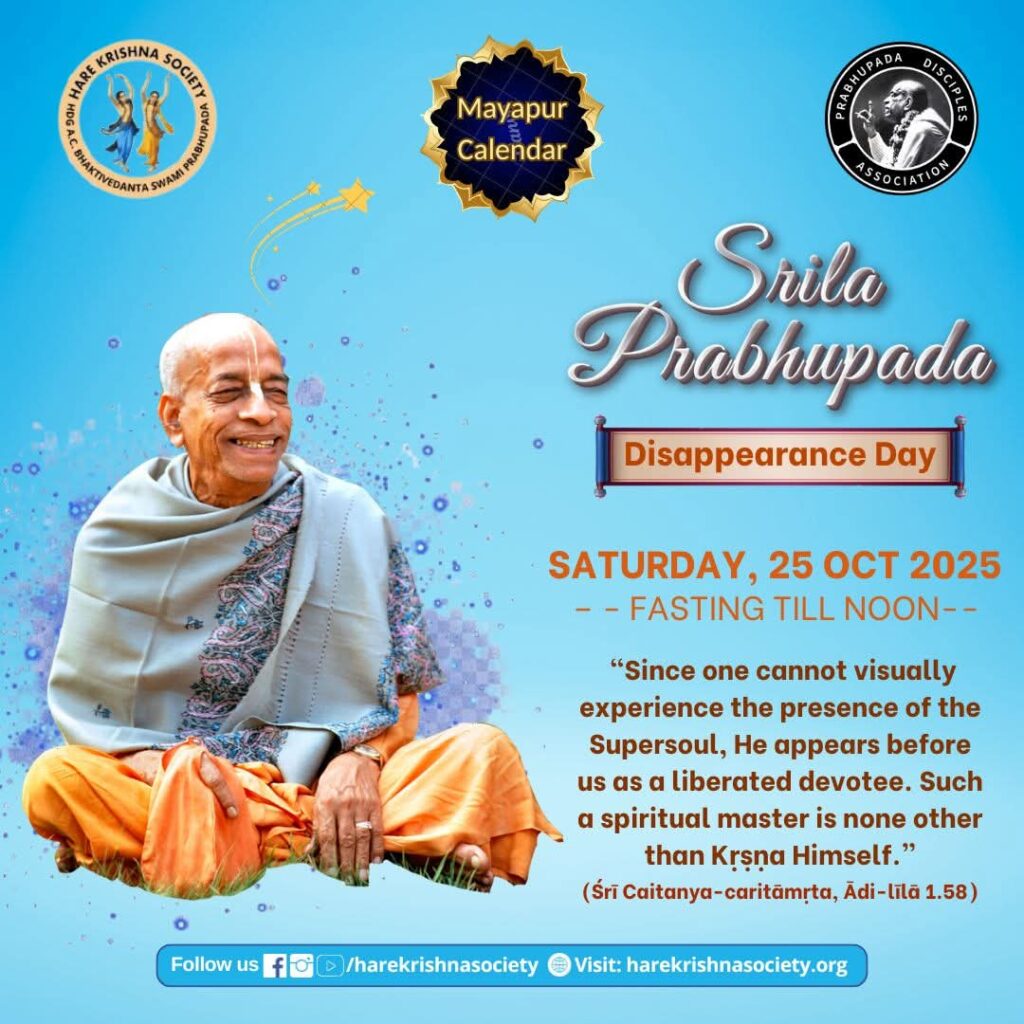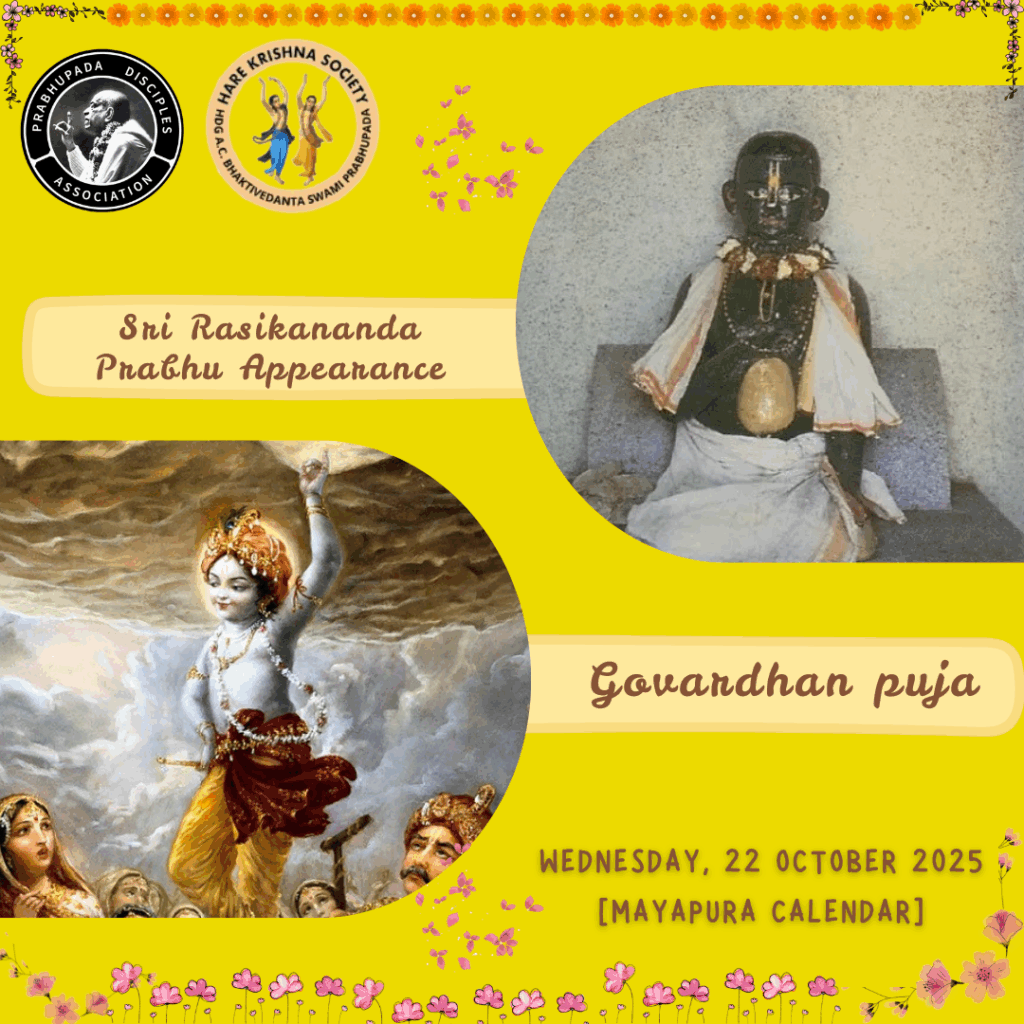- November 2, 2025Hare Krishna! EKADASHI REMINDER Sunday, 02 November 2025 [Mayapura, West Bengal, India Time] Utthana Ekadashi fasting from grains and beans.…

Under the guidance, inspiration and authority of
His Divine Grace A.C. Bhaktivedanta Swami Prabhupada
Founder-Acharya of the Krishna Consciousness Movement
Srila Prabhupada: “I wish that each and every branch shall keep their separate identity and cooperate keeping the acharya in the center. On this principle we can open any number of branches all over the world. (Letter, February 11, 1967)
